A manifesto shared by a pro-China personality falsely claimed that the Enhanced Defense Cooperation Agreement between the Philippines and the United States is banned under the constitution.
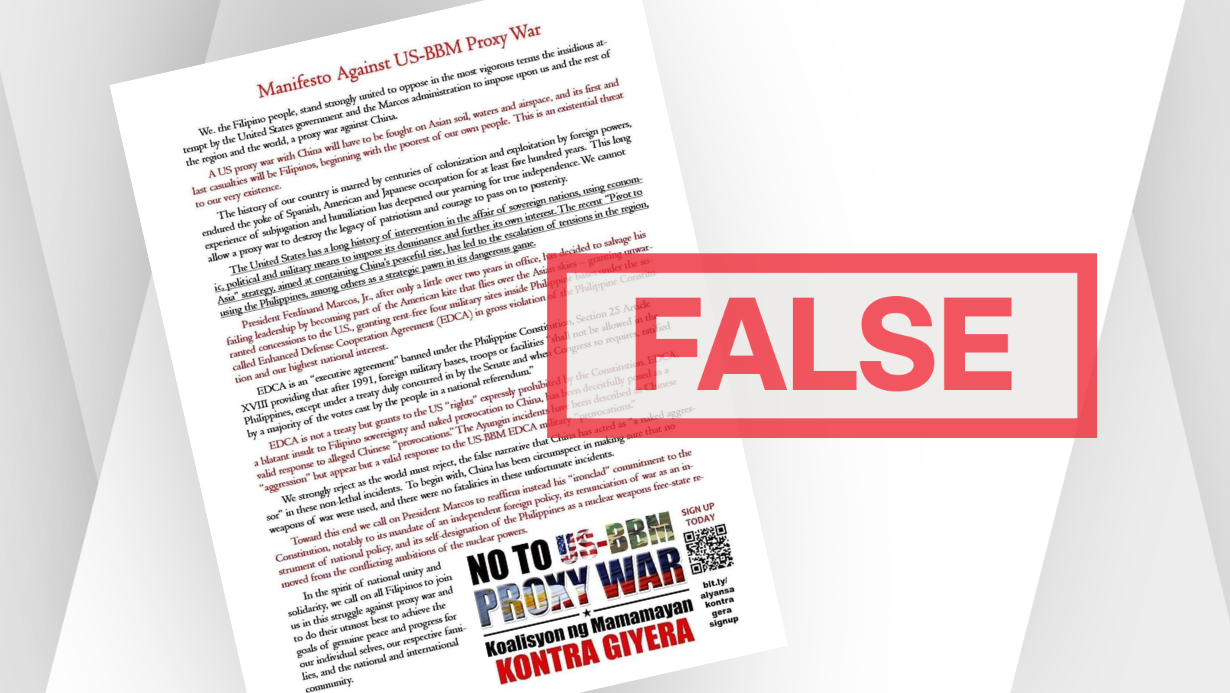
CLAIM: The Enhanced Defense Cooperation Agreement is an executive agreement banned under the Philippine Constitution.
RATING: FALSE
A manifesto shared by a pro-China personality falsely claimed that the Enhanced Defense Cooperation Agreement (EDCA) between the Philippines and the United States is banned under the constitution.
In a post on X, Manila Times columnist Anna Malindog-Uy shared the “Manifesto Against US-BBM Proxy War” on April 24.
The manifesto wrongly claimed that the “EDCA is an executive agreement banned under the Philippine Constitution, Section 25, Article XVIII.”
On Jan. 12, 2016, the Supreme Court, voting 10-4, upheld the legality of EDCA between the Philippines and the United States.
The decision was penned by then-Chief Justice Maria Lourdes Sereno.
The high court did say that the EDCA is an “international agreement that allows the presence in the Philippines of foreign military bases, troops and facilities, and thus requires that the three requisites under Section 25, Article XVIII be complied with.”
The tribunal also upheld the authority of the president to enter into an executive agreement on foreign military bases, troops, or facilities if: (a) it “is not the principal agreement that first allowed their entry or presence in the Philippines,” or (b) it merely aims to implement an existing law or treaty.”
It added that the President alone had the choice to enter into the EDCA either through an executive agreement or a treaty.
The high court also said that “executive agreements may cover the matter of foreign military forces if it involves detail adjustments of previously existing international agreements.”
“As it is, EDCA is not constitutionally infirm. As an executive agreement, it remains consistent with existing laws and treaties that it purports to implement.” the decision concluded. Rommel F. Lopez
PressOne.PH is a verified signatory of the Code of Principles of the International Fact -Checking Network (IFCN) at Poynter. The code of principles of the International Fact-Checking Network is a series of commitments organizations abide by to promote excellence in fact-checking. We believe nonpartisan and transparent fact-checking can be a powerful instrument of accountability journalism..
PressOne.PH believes that fact-checking is essential to combating misinformation and disinformation, and in informing and educating citizens and voters. Read more of PressOne.PH’s Fact-Checking Policy by clicking here.
The public is welcome to send feedback or requests for fact-checks at factcheck@pressone.ph.
If you believe PressOne.PH is violating the Code of Principles of the International Fact-Checking Network (IFCN), you may submit a complaint directly to the IFCN website: https://ifcncodeofprinciples.poynter.org/complaints-policy

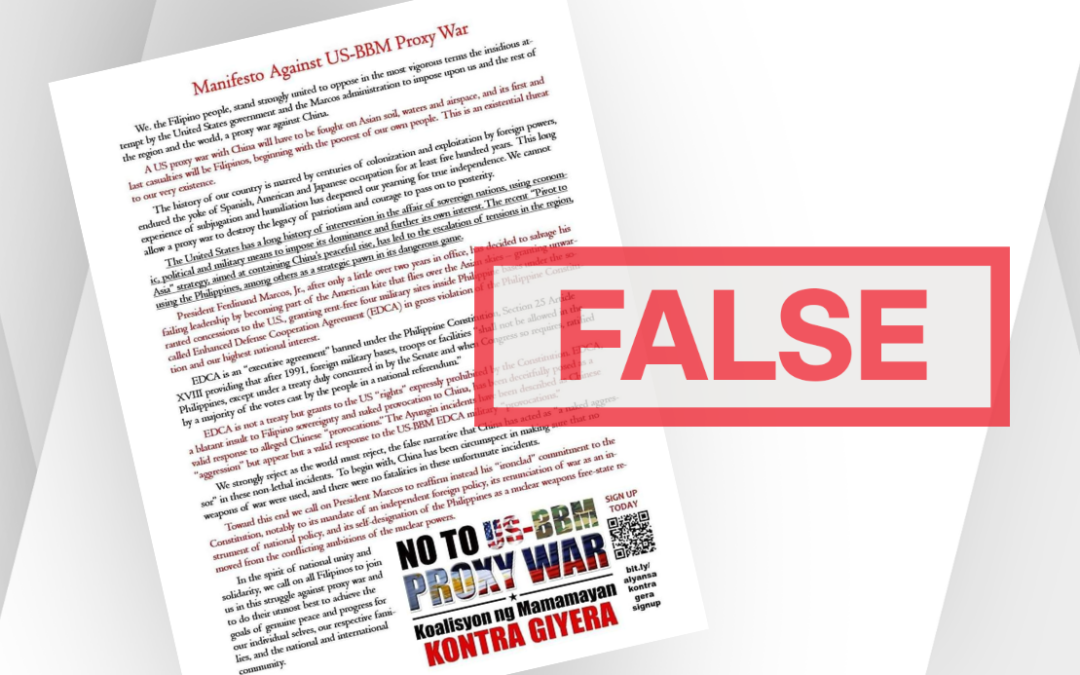
FACT-CHECK: EDCA is not unconstitutional
: A manifesto shared by a pro-China personality falsely claimed that the Enhanced Defense Cooperation Agreement between the Philippines and the United States is banned under the constitution.
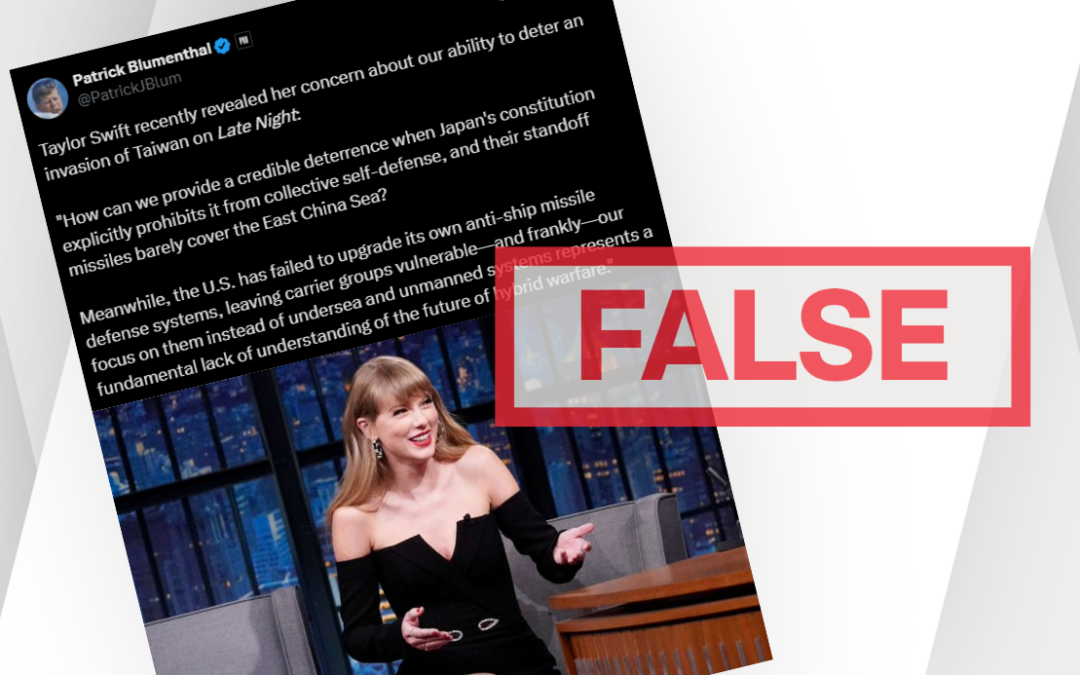
FACT-CHECK: Taylor Swift did not make any comment about US ability to stop war in Taiwan
An X user made the false claim that Taylor Swift had commented about the United States’ naval capability to deter an invasion of Taiwan.
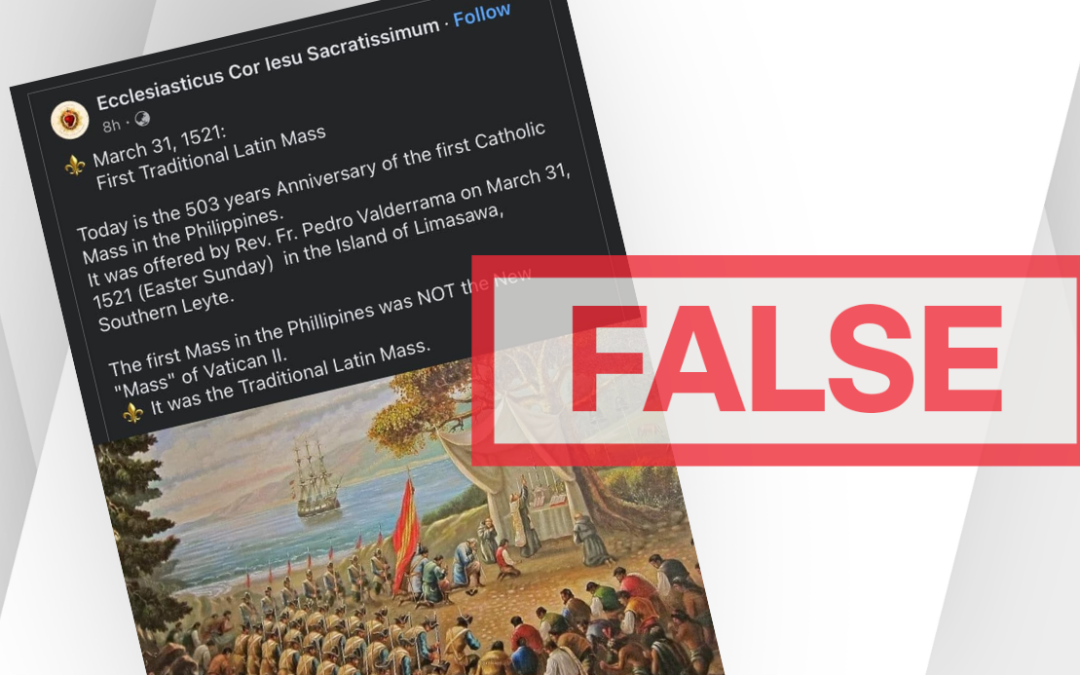
FACT-CHECK: Facebook post uses wrong painting to depict first Mass in PH
A Facebook post used the wrong painting to depict what it described as the first Mass in the Philippines.

Divisive American Indo-Pacific strategy
In January 2021, Washington crafted a strategy to promote an open and free Indo-Pacific region to deter its main competitor, Beijing, from dominating global political and economic influence.
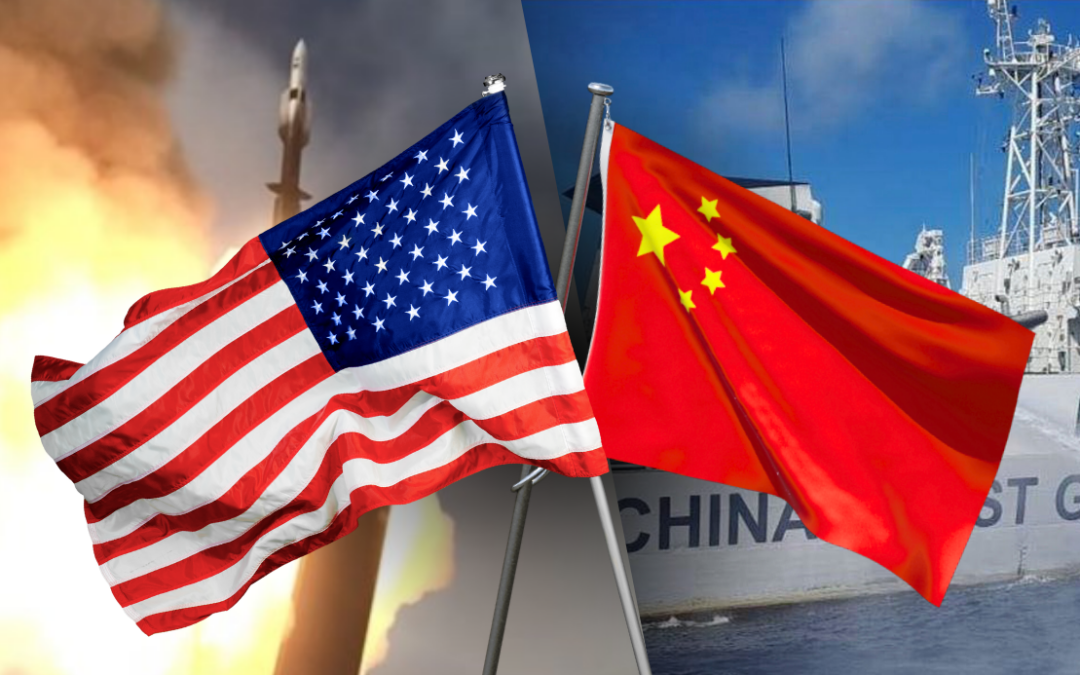
Threat or deterrence?
The US Army has deployed, for the first time, its latest intermediate ballistic missile launcher in the Philippines, a move that could draw a strong response from China.

Paano nagpapakalat ng propaganda ang Tsina sa Tiktok
Bagama’t tinanggal na ang page na ito sa naturang video streaming platform, napag-alaman ng ating himpilan na pinapatakbo ito ng China Daily, isang malaking media organization sa Tsina na pagmamay-ari ng kanilang pamahalaan.



0 Comments